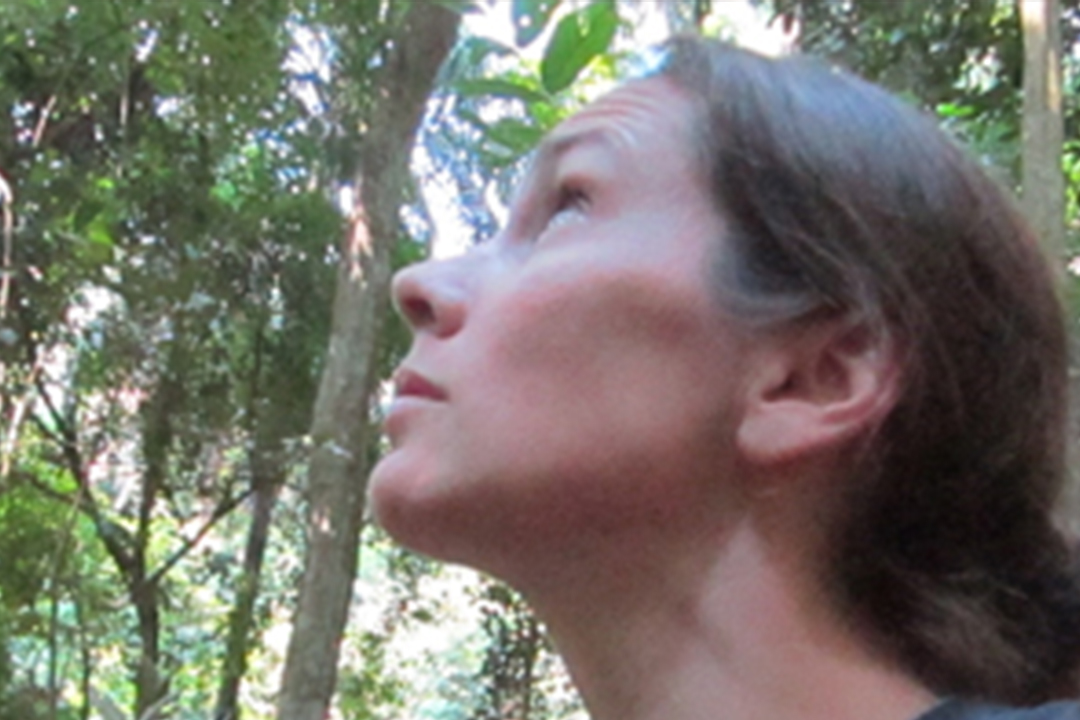A long history of research has established the critical importance of a healthy mother-offspring relationship in humans and other mammals in determining offspring survival and reproductive success. Most of that research on non-human primates, however, is based on captive populations because of the inherent difficulties in examining mammals, living in the wild, across generations. Now, with a $745,000 research grant from the National Institutes of Health, Assistant Professor of Anthropology Carson Murray seeks to fill that void through an extensive investigation of the interplay between maternal behavior and stress physiology in wild chimpanzees. The study, which is one of the first to examine the full impact of environmental diversity as it relates to maternal stress, may lead to new insights on anxiety-related disease in humans.
“My goal is to use wild chimpanzees as a model by which to explain how early experience influences offspring development and health in humans” said Murray. “The objective is to identify key stressors in the natural environment for female chimpanzees, and relate maternal stress to maternal behavior and offspring stress, health, and development.”
While research on captive mammals demonstrates the transmission of maternal behavior and stress across generations, it doesn’t take into account the full extent of diverse environments and the impact of those environments on a mother’s actions. In addition to working in the field to collect and analyze fecal samples to determine stress hormone levels, Murray and her team of graduate students will pull from data already collected over the past 40 years among the wild chimpanzees of Gombe National Park in Tanzania. That behavioral data, which spans three generations, will provide a wealth of knowledge about the evolutionary influence of maternal behavior.
“Our work will reveal which parts of the mother-infant relationship are important in the short-term, as measured through infant health and development, and those that have long-term consequences for reproductive success,” explained Murray.
The Human Impact
The increase in anxiety-related disease in humans is a growing global health concern and one that is triggering new approaches to understanding and reducing illness. Researchers have found that humans are often ill-adapted to the modern era, which has effectively removed the majority of us from natural and familial environments. Murray’s research offers a new approach to the scientific query surrounding the need to better understand the root of anxiety and its transmission across generations.
“Looking to modern humans to understand why we have a hard time coping seems circular,” noted Murray. “We are so far removed from our evolutionary context, yet we are held captive by our inertia to strengthen, not weaken, innate ties. The well-known behavioral and genetic similarities of chimpanzees to humans make them a particularly excellent and insightful model for this project.”
Murray’s research promises to be relevant on many issues that affect human families today in relation to mental, physical and emotional health. It may also illuminate a model for positive single-parenting because, while bi-parental care is common in humans, male chimpanzees do not inherently participate in child rearing. And, while chimpanzee mothers have evolved to effectively deal with the demands of single mothering, numerous studies have demonstrated that humans may suffer negative consequences in this environment.
“The results of our work will provide an interesting context in which to consider why single mothering in humans may be detrimental,” said Murray. “We will be able to effectively compare and evaluate why a successful single-mothering species, such as found in the chimpanzee population, does not easily translate to the human species in which single-parenting may have negative consequences.”
Carson Murray, a primate behavioral ecologist, is among Columbian College’s newest hires. She came to GW this year from Northwestern University where she was an adjunct faculty member in the Environmental Policy and Culture Program. She was also a post-doctoral fellow at the Lincoln Park Zoo and at the University of Chicago’s Institute of Mind and Biology.


